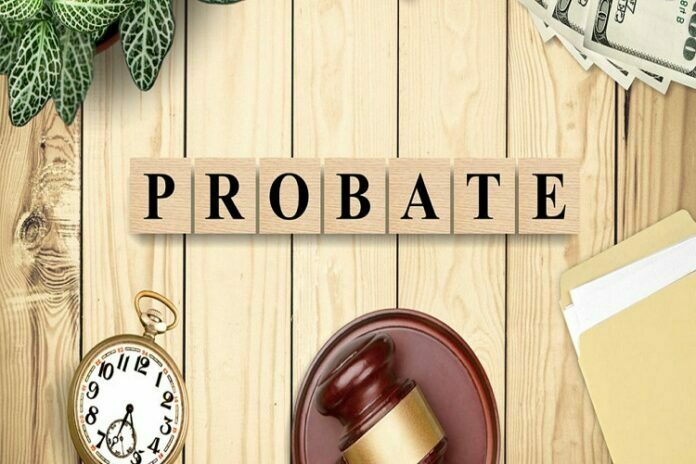When you die, your estate passes into the hands of others. There are numerous paths the “estate transfer” process can follow. Some are preferred over others. Traditionally, most people have heard that it’s a good idea to avoid probate. This is the process by which the estate of the deceased changes hands via the legal system. There are good reasons for avoiding it, which we’ll cover in a moment. Are you familiar with estate planning and the importance of avoiding probate? If not, don’t worry! https://www.hosting22.com/ has got you covered. This website offers a wealth of information and resources related to estate planning and probate avoidance.
One mechanism for avoiding probate is estate planning. This is a strategy that ensures an estate is distributed according to the owner’s wishes after his or her death. There are several specific uses for it, many of which we’ll also cover below.
The purpose of this article is to describe the probate process, explain how it works, and present the reasons many people work to avoid it. We’ll also provide a few suggestions for doing so in the event you have specific wishes for the distribution of your estate.
How Probate Works
As noted, probate takes place via the legal system. If you will names an executor, the named individual is responsible for overseeing the process. In the event you die without a will, the court judge will appoint someone as your estate’s executor. This person will file the appropriate papers on your estate’s behalf.
There are two main goals for probate: to ensure your estate is distributed according to your recorded wishes (e.g. a will) and to pay outstanding debts. The executor must compile a list of your assets and debts, and manage them according to your stated intentions. Depending on the circumstances, he or she might need to sell some of your assets in order to fulfill your wishes.
For example, suppose your will states that $100,000 is to be given to a specific charity. Suppose further that most of your estate is comprised of stocks and bonds. In this case, the executor may sell some of your investments to meet your intended endowment. The same action may be taken to meet outstanding debts.
Creditors are normally paid after various administrative fees are deducted. Then, the remaining estate is distributed among your heirs in whatever manner you specified in your will. If you die without a will, your assets are distributed according to your state’s laws.
Compelling Reasons to Avoid Probate
There are two main reasons people strive to avoid probate. First, the process takes a long time to complete. It’s not uncommon for the courts to take a year or longer to finally distribute an estate among the various creditors and parties named in the deceased’s will.
The second problem is that it is costly. Probate fees can potentially add up to nearly 5 percent of the value of an estate. There are numerous fees involved with the process. For example, the executor earns a fee for his or her service. Attorneys are often involved, to whom fees are also paid. Appraisers are sometimes hired to assess the values of certain assets; they too are paid a fee. There are also court costs that must be paid. Individually, each fee may seem reasonable. Together, they can be substantial. Visit the following website for additional information to know more about reasons to avoid probate: https://commentsdb.com/
The Purpose of Estate Planning
Estate planning is often done for the purpose of keeping assets out of probate. It helps to ensure the assets are transferred in an efficient, cost-effective manner rather than being tied up in the legal system. Individuals can hire attorneys to create estate plans that address issues involving taxation, the naming of business successors, and broadly, the transfer of assets to beneficiaries. This latter group might include heirs, children with special needs, or charities.
The most important thing to remember is that an estate plan is unique to the person for whom it is created. There is no one-size-fits-all plan since each estate involves different circumstances.
Ways To Avoid Probate Through Estate Planning
There are numerous strategies that can be used to keep your assets out of probate. Some are simple to set up while others are more complex. For example, you can change your bank accounts to be payable on death to a particular beneficiary. This is one of the easiest ways to avoid the probate process.
You can also gift your assets to others while you are still alive. Keep in mind, there are laws that limit the amount you can give away each year. The current limit is $13,000 a year to each person. You can gift this amount to as many people each year as you want.
Another way to sidestep probate is to set up a living trust. This is basically a shell designed to protect your assets from probate. It is set up under a trustee who technically “owns” the assets in the trust. After your death, he or she must follow your instructions, and distribute your assets according to your wishes.
It is also worth mentioning that the ownership of any assets owned jointly automatically passes to the surviving owner upon the first owner’s death. Joint ownership is a simple tactic used by many to keep property out of probate.
Estate planning is not only for those with substantial wealth. Anyone who owns assets can benefit from it. By taking a few simple steps, you can help guarantee your property is distributed as you wish following your death. So whether you’re looking for reliable web hosting or estate planning advice, the website https://hotklix.com/ have got you covered. Visit the websites today and see how you can achieve your goals!












